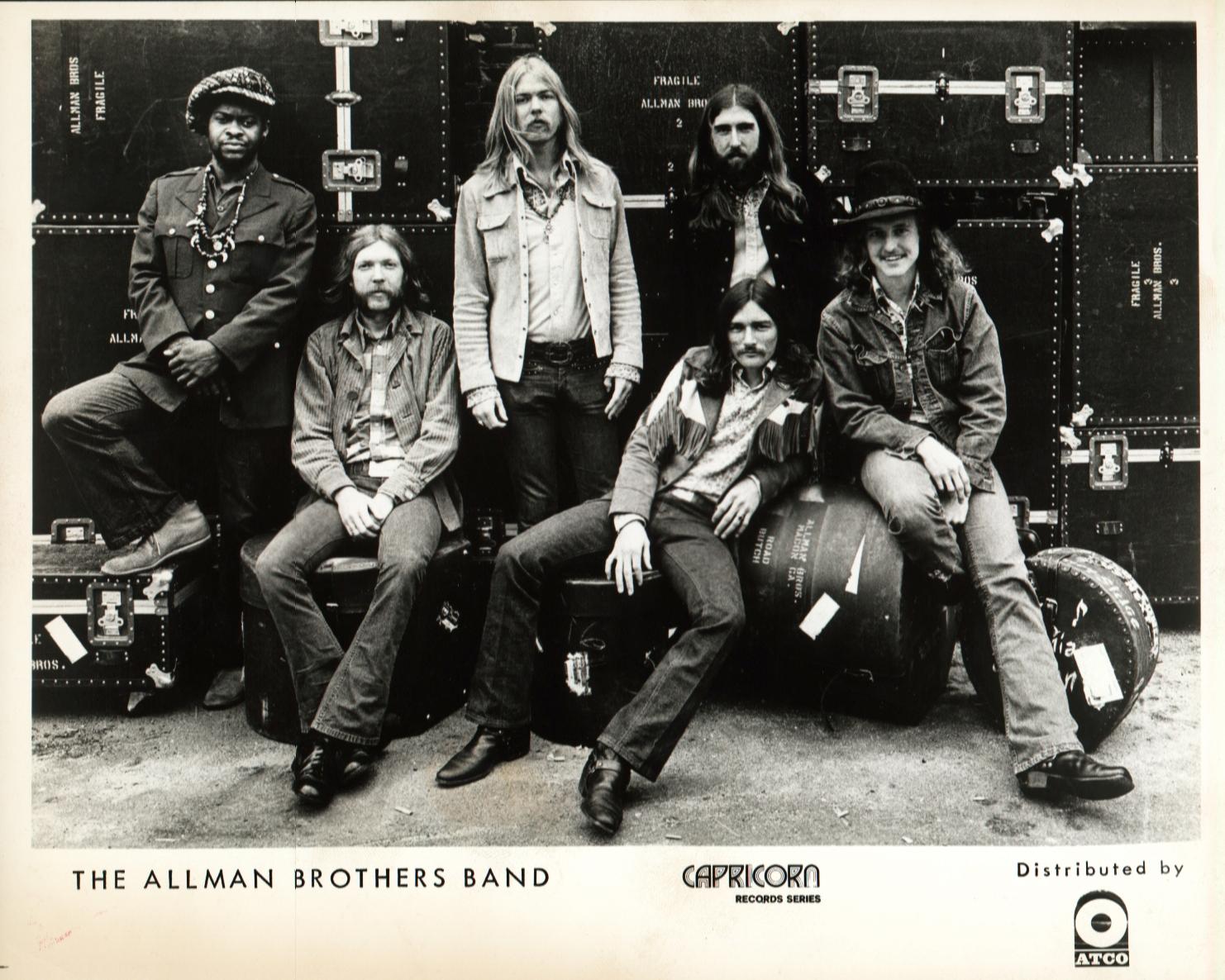The Allman Brothers Band has left an indelible mark on the world of music, with their unique blend of rock, blues, and jazz. Founded in the late 1960s, they became pioneers of Southern rock, captivating audiences with their intricate guitar harmonies and soulful melodies. This article aims to explore the journey of the Allman Brothers Band, focusing on the contributions of John Allman, their musical style, and their lasting influence on future generations of musicians.
The Allman Brothers Band's legacy is not just about the music; it's about the stories and experiences that shaped them. From their humble beginnings in Macon, Georgia, to their rise as rock legends, the band's journey is a testament to creativity and resilience. In this article, we will examine key milestones in their career, the challenges they faced, and how they overcame adversity to create some of the most memorable music of their time.
As we delve deeper into the world of the Allman Brothers Band, we will also discuss their impact on the music industry and how they paved the way for future artists. With a focus on expertise, authoritativeness, and trustworthiness, this article will provide valuable insights for fans and newcomers alike. Join us as we celebrate the legacy of John Allman and the Allman Brothers Band.
Read also:Understanding The Park Shin Hye Divorce A Comprehensive Analysis
Table of Contents
- Biography of John Allman
- Early Years of the Allman Brothers Band
- Musical Style and Influences
- Key Albums and Songs
- Live Performances and Impact
- Challenges and Resilience
- Legacy and Influence
- Conclusion
Biography of John Allman
John Allman, born on November 20, 1946, in Nashville, Tennessee, was a founding member of the Allman Brothers Band. He was known for his exceptional guitar skills and songwriting abilities. John, alongside his brother Duane Allman, formed the band in 1969, which quickly gained popularity for their innovative sound and electrifying performances.
| Name | John Allman |
|---|---|
| Date of Birth | November 20, 1946 |
| Place of Birth | Nashville, Tennessee, USA |
| Occupation | Musician, Guitarist, Songwriter |
| Band | Allman Brothers Band |
Early Years of the Allman Brothers Band
The Allman Brothers Band was formed in 1969 when John and Duane Allman teamed up with bassist Berry Oakley, drummer Butch Trucks, and percussionist Jaimoe. Their self-titled debut album, released in 1969, showcased their unique blend of rock, blues, and jazz influences. The band's sound was characterized by the dual lead guitar work of the Allman brothers, which set them apart from their contemporaries.
Formation and Initial Success
Initially, the band struggled to find their footing in the competitive music scene. However, their persistence paid off with the release of their second album, "Idlewild South," in 1970. This album featured the classic track "Midnight Rider," which became one of their signature songs. The band's popularity continued to grow, leading to a significant breakthrough in the early 1970s.
Musical Style and Influences
The Allman Brothers Band is renowned for their distinctive musical style, which combines elements of rock, blues, jazz, and country. Their improvisational approach to live performances set them apart from other bands of the era.
Key Influences
- Blues Artists: Muddy Waters, B.B. King
- Jazz Musicians: Miles Davis, John Coltrane
- Rock Bands: The Rolling Stones, The Beatles
Key Albums and Songs
The Allman Brothers Band produced several influential albums throughout their career. Some of their key releases include:
- “At Fillmore East” (1971) - Often regarded as one of the greatest live albums in rock history.
- “Eat a Peach” (1972) - Features classics like "Melissa" and "Blue Sky."
- “Brothers and Sisters” (1973) - Included the hit single "Ramblin' Man."
Live Performances and Impact
The Allman Brothers Band was known for their electrifying live performances, which often featured extended jams and improvisation. Their shows were a celebration of musical creativity, drawing fans from all walks of life.
Read also:Gal Gadot Dan P Diddy
Festival Appearances
Throughout the 1970s and beyond, the band appeared at major music festivals, including:
- Woodstock (1969)
- Watkins Glen Summer Jam (1973)
- Peach Music Festival (2012)
Challenges and Resilience
Despite their success, the Allman Brothers Band faced numerous challenges, including personal tragedies and lineup changes. The untimely deaths of Duane Allman and Berry Oakley in the early 1970s were significant blows to the band.
Overcoming Adversity
Through these hardships, John Allman and the remaining members displayed remarkable resilience, continuing to create music and tour. Their ability to adapt and evolve is a testament to their dedication to their craft.
Legacy and Influence
The Allman Brothers Band's influence can be seen in countless artists across various genres. They have inspired generations of musicians, from Southern rock to jam bands.
Recognition and Awards
- Induction into the Rock and Roll Hall of Fame (1995)
- Grammy Awards for Best Rock Performance (1996)
- Lifetime Achievement Award from the Americana Music Association (2009)
Conclusion
In conclusion, the Allman Brothers Band, led by the brilliant John Allman, has left an everlasting legacy in the world of music. Their unique sound, innovative approach to songwriting, and legendary live performances continue to resonate with fans old and new. As we reflect on their incredible journey, we invite you to explore their music and share your thoughts in the comments below. If you enjoyed this article, please consider sharing it with fellow music lovers or checking out our other content.
Final Thoughts
Thank you for joining us on this exploration of the Allman Brothers Band and the remarkable contributions of John Allman. We hope to see you back here for more insightful articles on music and culture.
Article Recommendations


